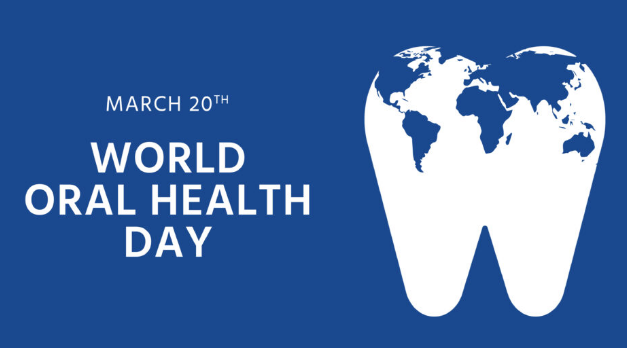World Oral Health Day 2023: Implement Regional and Global strategies on oral health – WHO urges
Our life is built on a foundation of oral health. From infancy to old age, it helps us carry out necessary tasks and affects our self-esteem, wellbeing, and capacity for social interaction and employment free from pain, discomfort, and shame. Nonetheless, despite the fact that most oral diseases are avoidable, dental caries, gum conditions, and tooth loss are the most prevalent both internationally and locally. In the WHO African Region in 2019, 43.7% of the population was affected by oral illnesses.
Significant inequities are reflected in the burden of oral diseases, which has considerable negative effects on social, economic, and health systems. For instance, the disease noma primarily affects young children and damages their mouths and faces. In 90% of cases, it is lethal if untreated. Mostly prevalent in Sub-Saharan Africa is a marker of extreme poverty
Our region has seen the biggest increase in the number of serious oral disease cases over the past 30 years, according to the regional summary of the WHO Global Oral Health Status Report published in 2022. Oral health, however, is fundamentally underfunded. The majority of our nations lack oral health regulations. In 2019, treatment expenditures for oral health care were less than US$1 per person per year in more than 70% of our countries. A persistent shortage of oral health professionals has also been a problem. For instance, the regional ratio of dentists per 10,000 people is equal to one-tenth of the global ratio.
To overcome these obstacles, nations, the WHO, and partners must band together, adhere to, and put into practice regional and global oral health strategies that direct nations to address oral diseases as part of noncommunicable disease (NCD) prevention and control in the direction of universal health coverage (UHC). By treating shared risk factors, such as alcohol and tobacco use and an unhealthy diet, with other NCDs, such as diabetes and malignancies, oral illnesses can be averted. Also, everyone should be able to get affordable, high-quality oral health care that meets their needs.
The WHO has assisted nations in creating and implementing oral health policies. We supported the development and implementation of national oral health strategies in Senegal, Kenya, Cabo Verde, Malawi, and Mauritius in 2022. In the same way, we dealt with Botswana, Lesotho, and Algeria. In collaboration with Harvard University, we are creating an online training course for community health workers to facilitate task sharing of oral health interventions among oral and other health professionals in order to address the shortage of oral health workforce in response to the needs of the population.
We helped eleven nations that were receiving funding from the German nongovernmental group Hilfsaktion Noma e.V. to plan, execute, and monitor an integrated national noma control program. We successfully started the online training program for noma targeted primary care providers in July 2022. Over 3,600 people enrolled in this course in order to learn more about this serious illness, develop their capacity for noma prevention and control, and hopefully apply that information and expertise for primary care-level early detection and treatment.
As was evident from the previous, some development has been made in cooperation with nations and partners. To accomplish the worldwide goal of UHC for universal access to oral health by 2030, however, progress might be made more quickly.
I firmly recommend that Ministries of Health take advantage of both current strategic advice and lobbying opportunities to:
Put oral health at the top of the list of priorities for NCDs and UHC, and enhance political and financial support for it.
To address oral health disparities, adopt more proactive prevention and promotion strategies rather than treatment-focused ones.
Incorporate oral health into the health systems, including through adding dental services to the UHC benefit package, delegating dental care tasks to other medical professionals, and gathering data on mouth health through the current surveillance system.
Encourage community participation, involvement, and empowerment to give people more control over their dental and overall health.
Moreover, NGOs, public society, and the commercial sector must to promote and assist government initiatives in putting into practice population-based oral health programs. I advise everyone to live a healthy lifestyle and eat a well-balanced diet that is high in fruit and vegetables and low in free sugar. Choose water as your primary beverage. Avoid using any tobacco products, limit your dangerous alcohol use, and brush your teeth twice a day with fluoride toothpaste to preserve good dental hygiene. Let’s band together to fight oral diseases on this World Oral Health Day in 2023 and take steps to improve people’s oral health, overall health, and quality of life.




